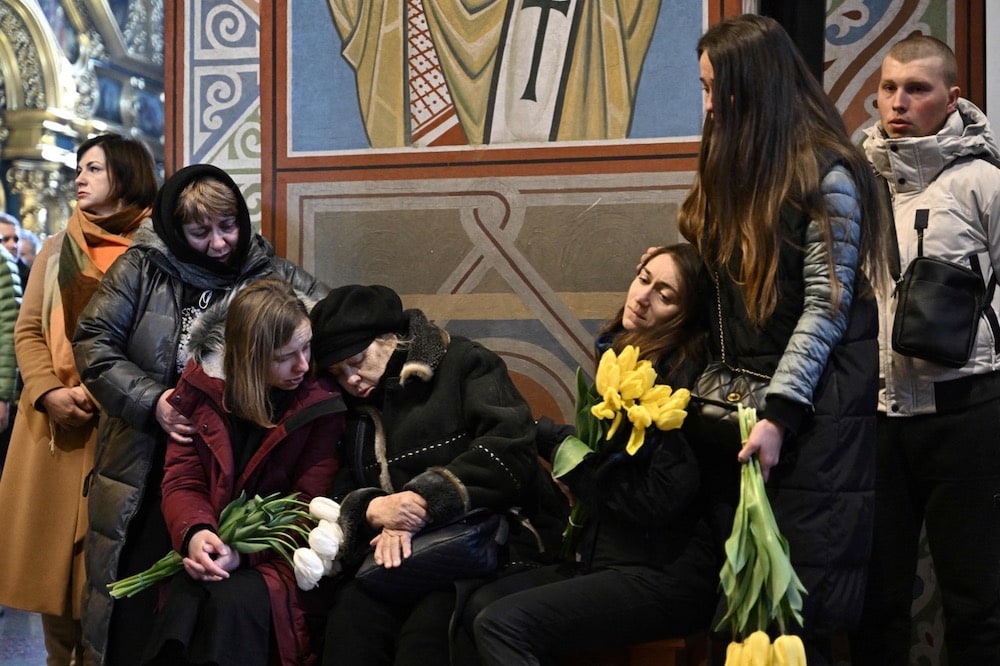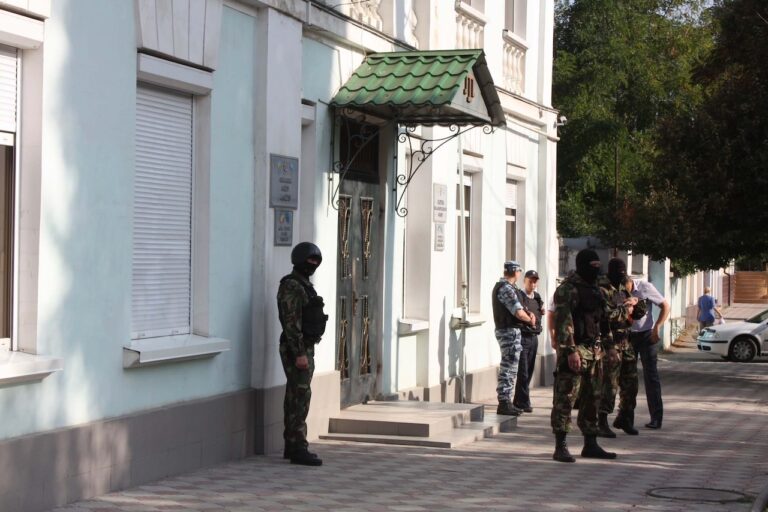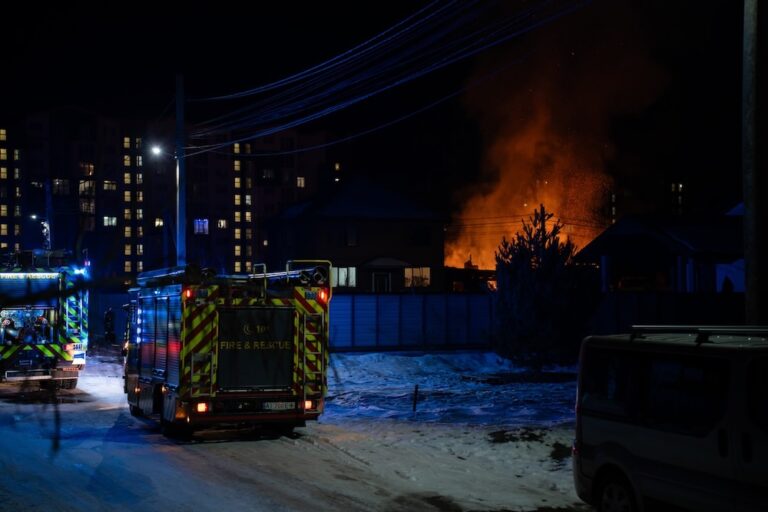On 1 April, photojournalist Maks Levin was found dead in a village near Kyiv after having been missing for more than two weeks. On 2 April, Lithuanian documentary maker Mantas Kvedaravičius was killed, reportedly by Russian shelling, in Mariupol.
This statement was originally published on ipi.media on 4 April 2022.
IPI demands justice for Maks Levin and Mantas Kvedaravičius
The IPI global network mourns the death of two further journalists as a result of Russia’s invasion of Ukraine. On April 1, photojournalist Maks Levin was found dead in a village near Kyiv after having been missing for more than two weeks. On April 2, Lithuanian documentary filmmaker Mantas Kvedaravičius was killed in Mariupol. IPI expresses its deepest condolences to their family, friends, and colleagues.
On April 1, 2022, Ukrainian photographer and documentary maker Maks (Maksim) Levin was found dead in the Kyiv region. Levin had been missing since March 13, when he visited the village of Huta Mezhyhirska to document the consequences of Russian aggression, together with Okelsiy Chernyshov, a soldier and former photographer. According to media outlet LB.au, for which Levin worked for more than a decade, the two men headed towards the village of Mushchun, after which contact to both of them was lost. It was later discovered that intense fighting had broken out in the area.
According to the Ukraine’s Prosecutor General’s Office, Levin was killed with two shots from small arms by Russian soldiers. The office said that Levin was wearing a press vest and that he was unarmed. An investigation into his death has been launched, the office said in a statement. Chernyshov is still missing.
One day later, on April 2, Lithuanian film director Mantas Kvedaravicius was killed in Mariupol, the Ukrainian city which he had documented for many years. According to the Ukrainian Ministry of Defense, his car was shot at by Russian occupiers while trying to leave Mariupol. The Lithuanian news agency 15min.lt reported that Kvedaravičius was immediately taken to the hospital, but did not survive.
“IPI is heartbroken by the deaths of Maks Levin and Mantas Kvedaravicius, two highly experienced journalists whose courageous work has been indispensable to informing the world about the years of conflict and now war in Ukraine,” IPI Deputy Director Scott Griffen said. “Our thoughts are with their families and colleagues.”
“While we cannot bring back Maks and Mantas, we must secure justice for their killings. There must be a full investigation into the circumstances of their deaths and those responsible must be held to account. The targeted killing of a journalist constitutes a war crime under international law, which must not pass unpunished.”
Conflict photographer
“Every Ukrainian photographer dreams of taking a photo that will stop the war,” Kyiv-born Levin, 40, once told the Ukrainian news outlet LB.ua. He had worked with numerous Ukrainian media outlets as well as international news organizations, including the Associated Press, Reuters, the BBC, the Moscow Times, Radio Bulgaria and the Ukraine Crisis media center, mostly reporting on war and conflict in Ukraine.
In 2014, he founded afterilovaisk.com, a military project to preserve and reflect on the battle of Ilovaisk in August 2014, during which hundreds of Ukrainian soldiers lost their lives. Besides his journalistic work, Levin also worked for humanitarian organizations. He leaves behind his wife and four sons.
Mariupolis
Mantas Kvedaravičius, 45, was best known for his conflict-zone documentary “Mariupolis”, which premiered in 2016 at the Berlin Film Festival that year. In the film, Kvedaravičius depicts the city of Mariupol, a port city in eastern Ukraine where Russian-backed separatists have been fighting Ukrainian forces since 2014. The city was a main target of Russia’s invasion of Ukraine, with much of the city now in ruins.
In 2011, Kvedaravičius made the film “Barzakh”, about war-torn Chechnya, which won the Amnesty International Film Prize at the 2011 Berlin International Film Festival.
Seven media workers killed
In total, seven journalists have been killed due to their profession in relation to the Russian war against Ukraine according to IPI’s Death Watch. On March 1, TV cameraman Yevhenii Sakun was killed as a result of a Russian missile strike on Kyiv’s television tower. On March 14, award-winning American filmmaker Brent Renaud was killed when his car came under fire shortly after he had passed a checkpoint near Irpin outside of Kyiv. On March 15, Fox News cameraman Pierre Zakrzewski and local producer Oleksandra ‘Sasha’ Kuvshinova were killed when their vehicle was struck by incoming fire in Horenka, on the outskirts of Kyiv.
On March 23, journalist Oksana Baulina lost her life when she came under new rocket fire near Kyiv.



